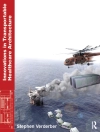This collection discusses the innovative and experimental architecture of Israel during its first three decades following the nation’s establishment in 1948. Written by leading researchers, the volume highlights new perspectives on the topic, discussing the inception, modernization and habitation of historic and lesser-researched areas alike in its interrogation. Inbal Ben-Asher Gitler and Anat Geva show how Israeli nation building, in its cultural, political and historical contexts, constituted an exceptional experiment in modern architecture. Examples include modern experiments in mass housing design; public architecture such as exhibition spaces, youth villages and synagogues; a necessary consideration of climate in modern architectural experiments; and the exportation of Israeli modern architecture to other countries.
Table des matières
Introduction by Inbal Ben-Asher Gitler and Anat Geva
Part I: Modern Experiments in Rural and Urban Design
Chapter 1: The Experimental Integrative Habitation Unit as a Modern Experimental Lab in Israel by Yair Barak
Chapter 2: From A-Locality to Locality: The Gur Neighbourhood in Hatzor Ha Glili by Oryan Shachar
Chapter 3: Un-Settling Established Narratives: The West Bank ‘Communal Settlement’ as Architecture and Planning Lab by Yael Allweil
Chapter 4: Landscape Modernism and the Kibbutz: The Work of Shmuel Bickels (1909–1975) by Elissa Rosenberg
Part II: Public Architecture as Testing Ground
Chapter 5: A Museum In Between: The Israel Museum, Jerusalem, 1965 by Eliyahu Keller
Chapter 6: Genia Averbuch: Modernism Meets the Vernacular: Youth Villages for New Immigrants, 1948–1955 by Sigal Davidi
Chapter 7: The Modern Israeli Synagogue as an Experiment in Jewish Tradition by Naomi Simhony
Chapter 8: Israeli Architecture at a Turning Point: Designs for the Israeli Center for Technological Awareness, 1978 by Jeremy Kargon
Part III: Considering Climate
Chapter 9: Minus 400 and Over 40 Degrees: Architecture in the Dead Sea, 1948–1971 by Daphne Binder and Theodore Kofman
Chapter 10: Architectonic Experimentation in Early Israeli Architecture Vis-à-Vis Climatic Constraints: The Case of the Negev Desertby Isaac A. Meir, Rachel Bernstein and Keren Shalev
Chapter 11: The Other Side of Climate: The Unscientific Nature of Climatic Architectural Design in Israel by Or Aleksandrowicz
Part IV: Reflections Abroad
Chapter 12: Building and Re-Building a Nation’s Identity: Israeli and Italian Architectural Culture, Their Representation and the Role of Bruno Zevi (1918–2000) by Matteo Cassani Simonetti
Chapter 13: Prefabricating Nativism: The Design of the Israeli Knesset, 1956–1966 and the Sierra Leone Parliament, 1960–1964 by Ayala Levin
A propos de l’auteur
Christiane Gruber is a professor of Islamic art in the Department of the History of Art at the University of Michigan, Ann Arbor, as well as the founding director of Khamseen: Islamic Art History Online. Her work explores medieval to contemporary Islamic art, especially figural representation, depictions of the Prophet Muhammad, manuscripts and book arts, architecture, and modern visual and material cultures. Gruber’s recent publications include The Praiseworthy One: The Prophet Muhammad in Islamic Texts and Images (Indiana University Press, 2019) and an edited volume The Image Debate: Figural Representation in Islam and Across the World (Gingko and University of Chicago Press, 2019).
Contact: Department of the History of Art, University of Michigan, 110 Tappan Hall, 855 S. University Ave., Ann Arbor, MI 48109, USA.












